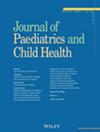Including Parents in Clinical Ethics Case Consultation
Abstract
Aim
Parents have legal and moral authority in healthcare decision making regarding their minor children. However, parents are not routinely involved in ethics case consultation meetings in paediatric settings. Clinical ethics services in paediatric hospitals in Australia have not yet debated the moral justification for parental involvement, nor the practicalities of doing so. This paper reports on a quality assurance project evaluating an Australian paediatric Clinical Ethics Response Group (CERG) to identify whether any changes to the service could improve clinical ethics support. Parental involvement in CERG ethics case consultations was one strand of the interviews, and this paper reports on this strand only.
Methods
Semi-structured interviews (n = 12) were conducted over Zoom or Microsoft Teams with members of a paediatric CERG and clinicians who had referred cases to the CERG, exploring their views on parental involvement in ethics case consultations and the optimal process for doing so. Transcripts were manually coded and analysed using Inductive Content Analysis.
Results
The unanimous view of a small cohort is that, as a minimum, parents should be offered the opportunity to provide information to ethics case deliberations, whether by letter or attendance at a meeting, yet the best process for doing so remains uncertain.
Conclusion
Debate and consideration of the underlying premise of parental involvement and various processes for doing so is an important step in developing best practice in Australian paediatric ethics case consultation.

 求助内容:
求助内容: 应助结果提醒方式:
应助结果提醒方式:


